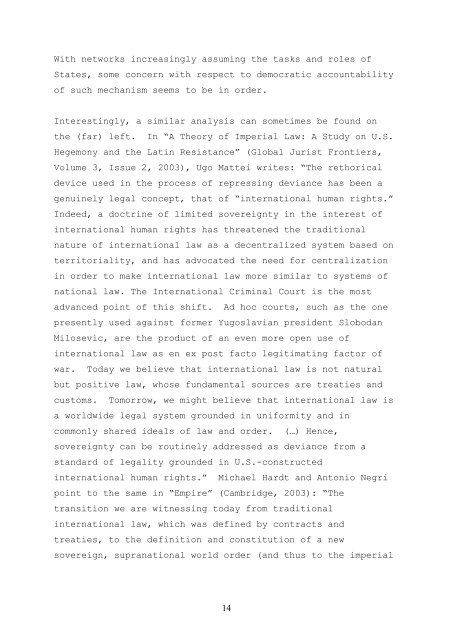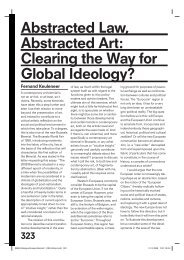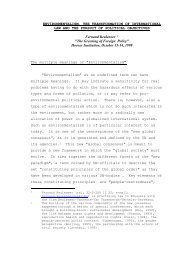FK - FS paper Rome 140604
Create successful ePaper yourself
Turn your PDF publications into a flip-book with our unique Google optimized e-Paper software.
With networks increasingly assuming the tasks and roles of<br />
States, some concern with respect to democratic accountability<br />
of such mechanism seems to be in order.<br />
Interestingly, a similar analysis can sometimes be found on<br />
the (far) left. In “A Theory of Imperial Law: A Study on U.S.<br />
Hegemony and the Latin Resistance” (Global Jurist Frontiers,<br />
Volume 3, Issue 2, 2003), Ugo Mattei writes: “The rethorical<br />
device used in the process of repressing deviance has been a<br />
genuinely legal concept, that of “international human rights.”<br />
Indeed, a doctrine of limited sovereignty in the interest of<br />
international human rights has threatened the traditional<br />
nature of international law as a decentralized system based on<br />
territoriality, and has advocated the need for centralization<br />
in order to make international law more similar to systems of<br />
national law. The International Criminal Court is the most<br />
advanced point of this shift. Ad hoc courts, such as the one<br />
presently used against former Yugoslavian president Slobodan<br />
Milosevic, are the product of an even more open use of<br />
international law as en ex post facto legitimating factor of<br />
war. Today we believe that international law is not natural<br />
but positive law, whose fundamental sources are treaties and<br />
customs. Tomorrow, we might believe that international law is<br />
a worldwide legal system grounded in uniformity and in<br />
commonly shared ideals of law and order. (…) Hence,<br />
sovereignty can be routinely addressed as deviance from a<br />
standard of legality grounded in U.S.-constructed<br />
international human rights.” Michael Hardt and Antonio Negri<br />
point to the same in “Empire” (Cambridge, 2003): “The<br />
transition we are witnessing today from traditional<br />
international law, which was defined by contracts and<br />
treaties, to the definition and constitution of a new<br />
sovereign, supranational world order (and thus to the imperial<br />
14












